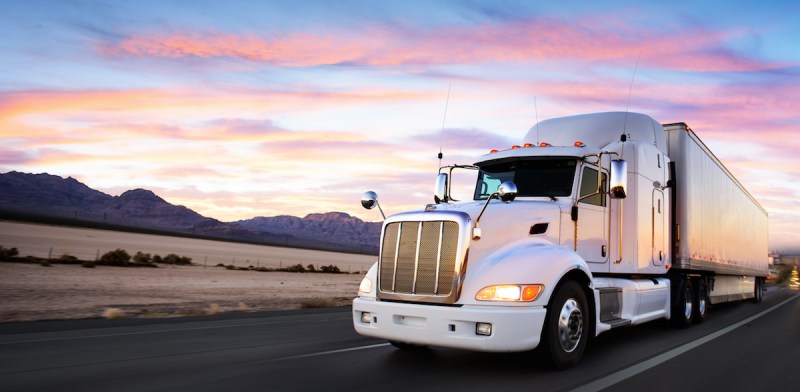Today, the trucking industry is lucrative, and if you have an entrepreneurial spirit, you can start your own trucking business. Believe it or not, it’s possible to start your own trucking business with just one truck. This can be a great way to test the waters of the trucking industry, work out the kinks and learn as you go, and bring in revenue to expand your business further.
According to a report published by the American Trucking Association stated, “Our economy depends on trucks to deliver ten billion tons of virtually every commodity consumed—over 80 percent of all freight transported annually in the U.S. In the U.S. alone, this accounts for $700.4 billion worth of goods transported by truck.”
Over 15 billion tons of goods was transported in 2017 alone. Within the next decade, analysts predict that it will grow 37% over the next decade. One of the best reasons to invest in trucking is because, if the numbers are correct, this is an industry that is not only here to stay, but is growing exponentially. Without the trucking industry, the American economy would come to a complete halt.
Fill Out the Necessary Paperwork
To stay in line with the law, you’ll need to be in compliance with federal and state regulations regarding operating a commercial vehicle. First thing’s first: you have to get your commercial driver’s license (CDL). You’ll also need the right legal structure to run your company. The three most common structures are sole proprietorship, limited liability company (LLC), and corporation.
It’s important to go over each structure to see which best matches yours. Work with your lawyer to determine where you fit. When it comes to setting up an LLC, you can also take advantage of quick online filing services like LegalZoom, who can take care of the gritty guesswork for you.
Hire a Process Agent
A process agent is someone you hire to accept the service of legal documents on behalf of your business. You are required to have a process agent in every state that you intend to business in. Your process agent will also file a BOC-3 permit on your behalf. For example, let’s say you started a trucking business in California, but one of your drivers gets into an accident in Texas. The BOC-13 form allows your process agent to accept court documents related to the case if another person files a claim against you.
Get Truck Insurance
Liability insurance is necessary for every trucking business. This is a step you don’t want to skimp out on. With liability insurance, any potential injuries and damages will be covered. Of course, not all insurance is treated equally. There are several factors you have to consider, besides just cost, when it comes to picking a truck insurance provider. For example, you have to think about their claims service and reputation. You also need a company that can provide the proper coverage on a commercial truck insurance policy.
Manage Your Team
Managing a fleet of trucks and drivers isn’t easy. In addition to using software to keep track of driver shifts, you’ll also need to incorporate fleet management sensors, which help keep track of driver behavior and truck safety. If the driver performs any actions that are harmful to the truck, themselves, or others, your company will be automatically alerted. These sensors will help you better manage fuel consumption, maintenance, and safety. You should also have systems like Reed Group leave management software in place. Leave management ensures seamless communication and compliance. This is especially true as your team grows larger, and paper-based systems and calendars are no longer efficient.
Get Your Truck Inspected
Having your truck inspected by a licensed professional can make a major difference in the success of your company. Both the trucking company and the truck driver are responsible for making smart, safe decisions. Unfortunately, there are many truck accidents that could have been avoided if the trucking company wasn’t negligent. Remember the old adage, “Cut costs, not corners.”
Create a Financial Plan
The ability to forecast costs and budget appropriately is imperative. Of course, one of the biggest financial investments will be the actual truck. The type of truck you’ll need depends on the type of goods you intend to transport. For example, transporting chemical goods or perishables requires an entirely different set of processes and you’ll need special licenses and trucks to be able to do so.
And of course, purchasing a tanker truck isn’t as easy as purchasing a standard vehicle. You should speak to multiple dealers to come up with various quotes. If you have the capital to purchase several trucks upfront, you may be able to get a deal. You should also consider leasing trucks to keep your monthly costs to a minimum when you’re still in startup mode.
It’s not just the truck you have to think about, either. You also have to consider the cost of equipment, and which equipment will help improve your bottom line.







